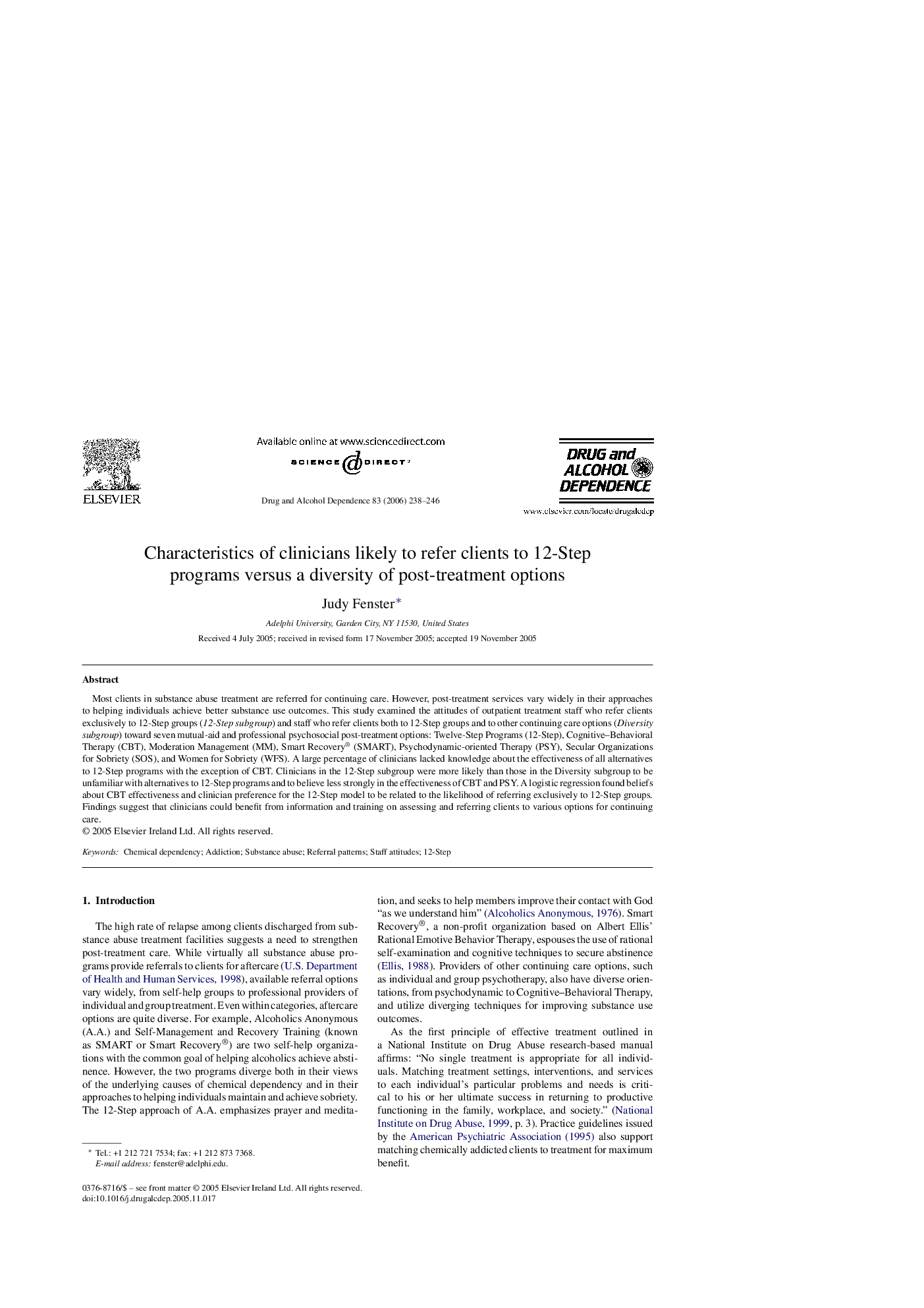| Article ID | Journal | Published Year | Pages | File Type |
|---|---|---|---|---|
| 1071481 | Drug and Alcohol Dependence | 2006 | 9 Pages |
Most clients in substance abuse treatment are referred for continuing care. However, post-treatment services vary widely in their approaches to helping individuals achieve better substance use outcomes. This study examined the attitudes of outpatient treatment staff who refer clients exclusively to 12-Step groups (12-Step subgroup) and staff who refer clients both to 12-Step groups and to other continuing care options (Diversity subgroup) toward seven mutual-aid and professional psychosocial post-treatment options: Twelve-Step Programs (12-Step), Cognitive–Behavioral Therapy (CBT), Moderation Management (MM), Smart Recovery® (SMART), Psychodynamic-oriented Therapy (PSY), Secular Organizations for Sobriety (SOS), and Women for Sobriety (WFS). A large percentage of clinicians lacked knowledge about the effectiveness of all alternatives to 12-Step programs with the exception of CBT. Clinicians in the 12-Step subgroup were more likely than those in the Diversity subgroup to be unfamiliar with alternatives to 12-Step programs and to believe less strongly in the effectiveness of CBT and PSY. A logistic regression found beliefs about CBT effectiveness and clinician preference for the 12-Step model to be related to the likelihood of referring exclusively to 12-Step groups. Findings suggest that clinicians could benefit from information and training on assessing and referring clients to various options for continuing care.
